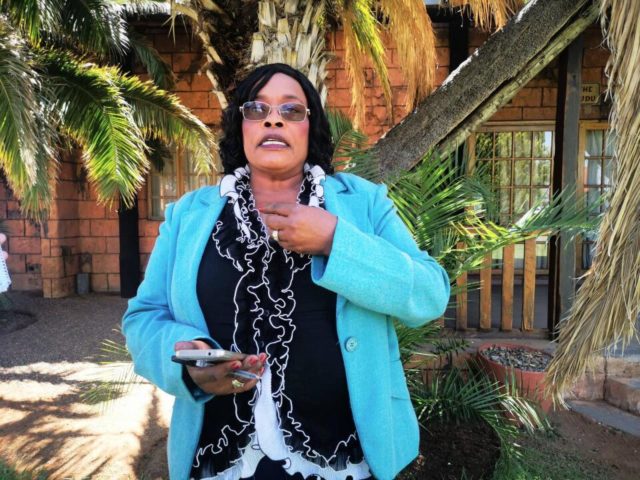“I now feel like I have to start afresh as a farmer. I thought that I would be an established commercial farmer by now.”
SMALL-SCALE farmers in the Northern Cape are facing dire economic conditions as a result of the ongoing drought, with many farmers forced to leave farming.
The farmers said that the current drought was the worst in 100 years. They said they had downscaled both the number of workers and livestock on their farms and also had to improvise in order to keep their livelihood going.
Small-scale livestock farmer Baisi Tang said that she had to change her farming ways. “I am currently focussing on farming with chickens. I started farming with 211 goats and 17 cattle. Currently I only have 25 goats left and had to sell all my cattle as I also became a victim of stock theft. Two of my cattle were slaughtered and I realised that keeping the cattle was not only costly but also a severe strain.
“Livestock has become costly to maintain due to the drought but chickens are not as costly. People are also eating more white meat and eggs, so that business is still sustainable. It was not my initial plan and dream, but I was left with no other choice.”
She said her employees were also hard hit as a result of the drought. “I employed a family, a man with his wife and their eldest son, to work on the farm. Unfortunately I had to let them go. That was one of the hardest things I have ever done because I knew they had no other income. Now my uncle is helping me out at the farm and I do not pay him a salary. It is just the two of us who are now running the farm. It has become too costly to hire any other people.”
Tang said the ripple effects of the drought were also felt by her own family. “I cannot send my children to study as I cannot pay for their tuition. I had to tell my son to look for work as we had no money for him to continue with his studies. I do not think people understand the effects of the drought have on farmers personally. Most people only focus on the animals but not on the people working with the animals.”
She said that urgent intervention is required. “I now feel like I have to start afresh as a farmer. I thought that I would be an established commercial farmer by now. The government needs to urgently assist all farmers during this challenge. However, the government cannot just supply farmers with fodder. There should be a system in place where government assists the farmers with drought relief and also monitors the progress of the farming. Drought relief is not a once-off thing but constant monitoring is required.”
A commercial game farmer, Jacques Kriek, said he too was forced to come up with alternative ways to keep his business running.
“We had to think out of the box. We did not want to let any of our employees go so we had to strategise about what people could do on the farm and also how we would ensure a revenue. We now sell the dead wood on the farm. This is one of the emergency efforts we had to put in place during these tough times,” said Kriek.
The DA in the Northern Cape said yesterday that it would put pressure on the government to implement a 10-year drought support and climate change mitigation plan.
The party pointed out that it would take another decade for the Province to recover from the drought even if there should be three years of good rain.
The party’s Western Cape Minister of Agriculture, Dr Ivan Meyer, joined by DA Northern Cape provincial leader Andrew Louw and the provincial spokesperson on Agriculture, Land Reform and Rural Development, Reinette Liebenberg, had a consultative meeting with farmers and other representatives of the agricultural sector yesterday. The purpose of the joint session was to discuss the ongoing drought, as well as issues of rural safety.
Meyer said at a press conference after the meeting that although help had been allocated to some farmers in the Northern Cape, government needed to dig deeper into its pockets in order to address the problem.
“While we remain grateful for the R30 million allocated to the Northern Cape by Deputy President David Mabuza earlier this year, the reality is that this money is just a drop in the ocean. The situation in the Northern Cape is even more dire than in the Western Cape and warrants an immediate intervention on a provincial level, while we continue to wait for the drought to be gazetted as a provincial disaster so that additional funds can be allocated.
“I will develop a memorandum of understanding in agriculture between the Western Cape, the Eastern Cape and Northern Cape that will enable us to share knowledge and ideas and better support each other, especially in times as difficult as these,” said Meyer.








